Terror group’s leader says March of Return protests prevented an ‘internal explosion in the Gaza Strip’
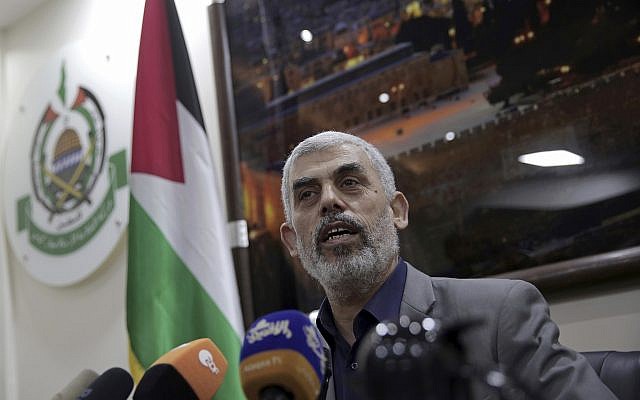
Hamas leader Yahya Sinwar on Tuesday reiterated his denial that a ceasefire agreement had been reached with Israel, saying that hostilities will not end until the blockade of the coastal enclave has been lifted.
“Solidifying the ceasefire means not returning to the situation of a siege at all. So far, there is no agreement or any formula for a ceasefire,” he said.
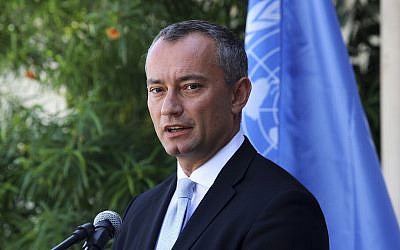
Sinwar also claimed that the uptick in violence between Hamas and Israel since March 30 had resulted in a victory of sorts for the terrorist group, as it had forced Israel to reconsider its position vis-a-vis the Strip.
“History will write that our people in Gaza, despite the hunger and the siege and with basic tools like balloons, kites and the March of Return, were able to push the enemy to review its calculus.”
“We told Mladenov: ‘Your job has changed. Instead of the UN envoy for the peace process, you have become the UN envoy for preventing war,’” he added, referring to United Nations Special Coordinator for the Middle East Nickolay Mladenov, who played a key role, alongside Egypt, in deescalating the recent violence.
However, Sinwar said, it was not time for complacency.
“In one minute, we can turn the table on the occupation’s heads,” he said. Last week the terrorist leader warned that if hostilities resumed, Hamas could launch hundreds of rockets deep into the Jewish state.
According to the Hamas-linked Shehab news site Sinwar also described the March of Return as “our faction’s choice and our people’s choice.”
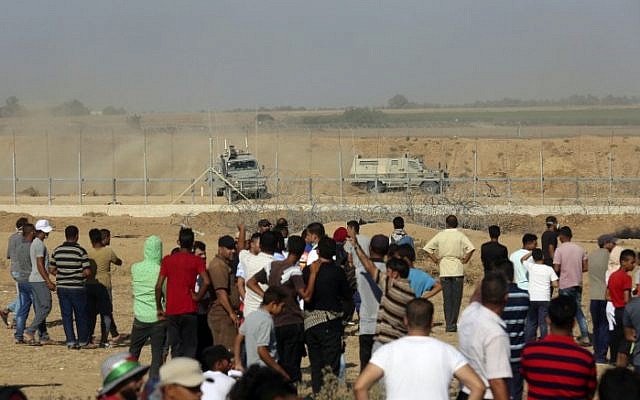
Recent months have seen repeated bursts of intense violence between Israel and Hamas, along with weekly border protests at the Gaza border that have regularly included rioting, attacks on Israeli troops and attempts to infiltrate and sabotage the border fence.
Around 170 Palestinians have been killed by Israeli fire since the weekly protests began, a Hamas ministry says. Hamas has acknowledged that dozens of those killed were its members.
One Israeli soldier was shot dead by a Palestinian sniper, and hundreds of rockets were launched at Israeli border communities.
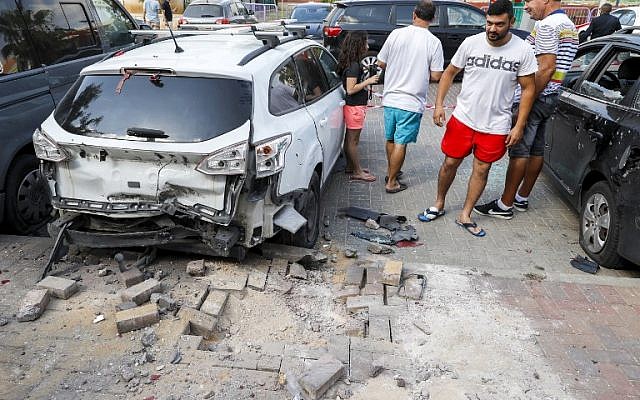
In addition, southern Israel has experienced hundreds of fires as a result of incendiary kites and balloons flown over the border from Gaza. Over 7,000 acres of land have been burned, causing millions of shekels in damages, according to Israeli officials.
Israel has maintained a blockade on Gaza since terror group Hamas, which is sworn to Israel’s destruction, seized the territory from the internationally backed Palestinian Authority in 2007. It says the blockade is in place in order to prevent weapons and other military equipment from entering the Strip.
But critics point to worsening humanitarian conditions in Gaza and say the blockade amounts to collective punishment of the two million Palestinians living there. There have been many reports that the coastal enclave is on the verge of a collapse, and could plunge into a new round of fighting with Israel if conditions do not improve.
Indirect negotiations between Hamas and Israel have reportedly included discussion on easing the blockade, but by no means a complete lifting of it.
Egypt, too, has kept its Gaza border crossing largely closed during several years of sour relations with the Islamist group ruling Gaza.
Regarding intra-Palestinian reconciliation talks, which have stalled recently, Sinwar said that a deal was still the ultimate goal.
“It is clear that the current state of affairs is not moving at the required pace for reconciliation, but we will not and have not lost hope in achieving this national track,” he said. “After reconciliation hit a dead end, an internal explosion in the Gaza Strip was being planned by several parties, but the March of Return foiled that plan.”
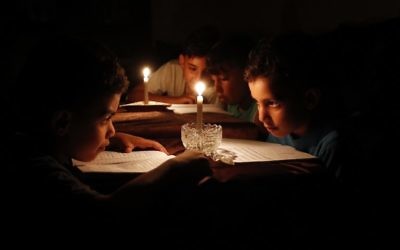
Sinwar charged that the talks broke down because “official Palestinian parties worked together with the Zionist intelligence services to make reconciliation fail.”
Palestinian Authority President Mahmoud Abbas’s Fatah party and Hamas have been deeply divided for more than a decade. Hamas seized control of Gaza from the Fatah-dominated PA in 2007 and several attempts at reconciliation since then have failed.
The PA government has been putting pressure on Hamas to reach a reconciliation deal that would return Fatah rule to Gaza, and earlier this year began to scale back electricity payments and other financial support in an effort to force Hamas to cede ground in Gaza.
Abbas is demanding that Hamas hand over complete control of Gaza to the PA, and that the switch be conducted in a single stroke rather than in stages.
He has warned against the reported deal taking shape between Israel and Hamas for a long-term ceasefire in Gaza if it does not include the PA.
As reported by The Times of Israel
